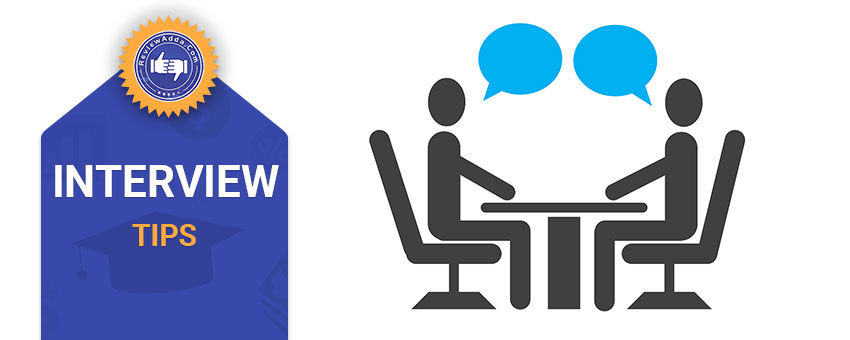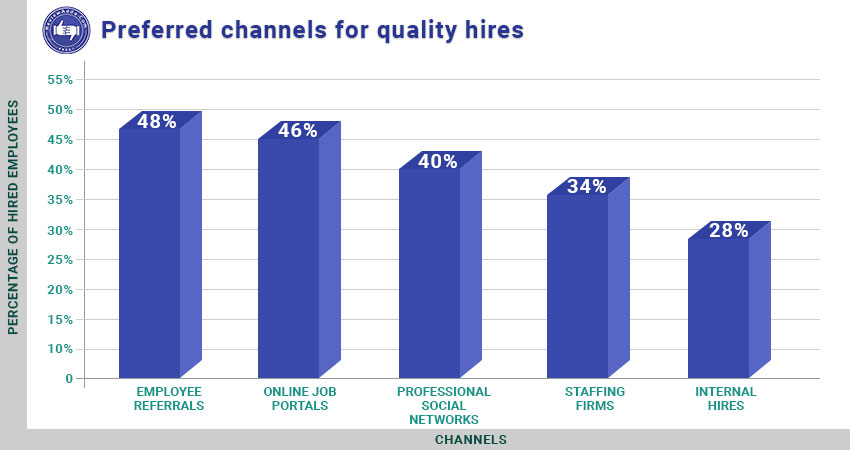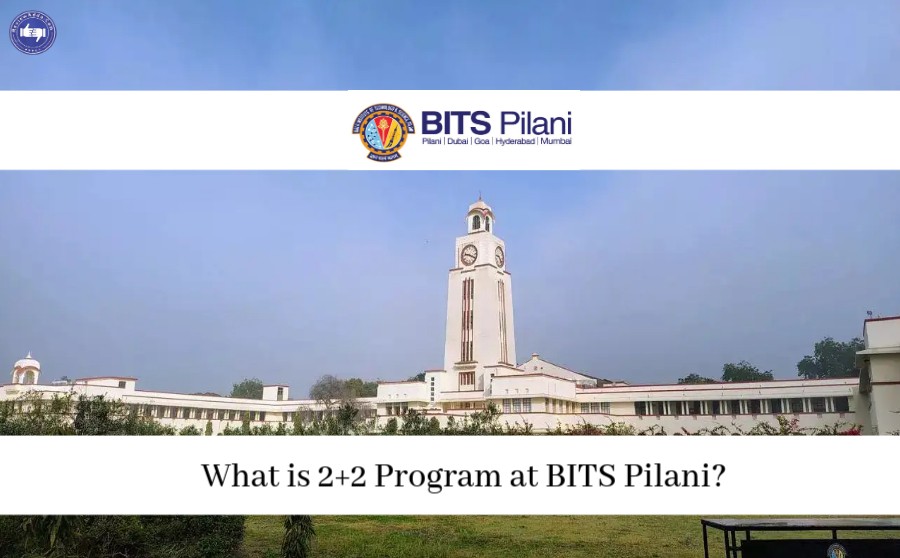Topic We Cover: Tell me something about yourself
1. The Importance of interviews: Why the age-old practise stills holds relevance
- Provides details about candidates otherwise difficult to know
- Gives a brief summary of the candidate’s body language
- Allows candidate to see if he/she fits in the given workplace
- Allows candidate to defend resume
2. Top 8 Interview Questions and the perfect answers to them
- Tell me something about yourself
- What are your strengths
- What are your weaknesses
- Why should we hire you
- What are you salary expectations
- Why are you looking for a job change
- How do you handle stressful situations and work-pressure
- Where do see yourself in the next five year
Job Interviews are a source some of the greatest number of stories in the professional world. While some choose to consider interviews as a normal conversation between two people looking to help each other, others consider it a tedious evaluation exercise.
Any professional with over 3-5 years of working experience usually has a number of interview experiences to recount. Though the whole process of interviews might have become too much of a myth in recent times, there is no denying their importance in a general recruitment setup.

Interview process is one of the most dreaded parts of recruitment amongst students
Amongst other questions, there are a few which are put forth to the interviewee in almost every interview. Even with their regular occurrence in most interviews, many candidates often find answering such questions tedious due to a number of reasons.
In this article, we shall discuss such questions and understand what the interviewer really wants from a candidate in a given setup.
The Importance of interviews: Why the age-old practise stills holds relevance?
Many professional practices which were prominent many years ago have receded over time with advent of better methods of running businesses and corporate houses. However, the importance of the interview round in the overall recruitment process has not diminished. Why has the ‘interview’ survived the test of time as a powerful evaluation tool for recruiter?
1. Provides details about candidates otherwise difficult to know
A Job Application is a piece of paper which can absorb only so much information about a candidate. Recruiters generally like to have the complete profile of a candidate and not just some quotidian details smudged on a piece of paper. Putting a human face adds weight to any job application.
2. Gives a brief summary of the candidate’s body language
A key part of working in an office environment is having the necessary interpersonal tools to work with fellow colleagues in an office environment. The presence of these tools can only be ascertained through a formal face to face interview.
3. Allows candidate to see if he/she fits in the given workplace
Some work environments are suitable to some type of professionals and unsuitable for some. The only way a candidate can realize if the workspace is suitable is by physically being present at the venue for the interview.
4. Allows candidate to defend resume
There are times when recruiters simply reject resumes and applications based upon certain assertions made by candidates. In an interview, a candidate is given the opportunity to clearly explain what he/she may have mentioned in the job application.
Top 8 Interview Questions and the perfect answers to them
Having understood the importance of the Interview Process, the next step involves understanding how to answer some commonly misinterpreted interview questions. They are given as follows-
1. Tell me something about yourself
The popularity of this question is self-evident by the fact that the article itself is named after it. The recurring nightmare this question causes amongst candidates is the very reason recruiters use this as a filter to eliminate the weaker candidates.
The first key aspect to understand is the interviewer’s motive behind asking this question. As a candidate, you have to ask yourself why most recruiters ask this question.
To a recruiter, every interview is a information absorbing exercise. In a span of ten minutes the interviewer wants to know whether you will be fit for the position you’re applying for. ‘Tell Me About Yourself’ is a question which sets up the whole interview to be centred on your job application and you.
Before understanding what the ideal answer to this question should be, it will be wise to first know the answers you should definitely not give.
- How not to answer ‘Tell me something about yourself?
- Do not spout every detail listed on your resume. The recruiter already has your resume in his/her hand and does not need a fresh perspective from you. Try to spin the narrative in a way which lends weight to your resume and not in a manner which simply supplements the aforementioned.
- Do not be modest about your achievements. The interviewer has no interest in appreciating your maudlin nature. His/her interest lies in pure information. Many candidates stop short of explaining their achievements out of an apprehension of seeming boastful to the interviewer. Do not make this mistake in your interview.
- Do not treat the interview like a Macy’s Day Parade. Recruiters hate candidates who come across as too casual. Try to be a model professional in the entire process.
- Do not keep on blabbering without knowing where you’re going. Some candidates start speaking without knowing how they’re planning to structure their answer. This will be a recipe for disaster as it signals a lack of preparedness and general mismanagement on your part.

Preferred channels for quality professionals in India
- How to answer ‘Tell me something about yourself’?
- Describe yourself in the first sentence. The crux of the description relies upon being crisp and to-the-point in the attempt. An example has been given below to explain.
I am Aman, an industrious software developer with over five years of experience managing all the tranches of mobile app development.
Consider the above example. The candidate, Aman, highlights his work experience and the field in which he stakes his proficiency. Furthermore, he highlights himself as being ‘industrious’, managing to insert a key personality trait to boost his profile.
Let us take another example.
Hi, I am Aman. I have been working as a software developer for the past five years. As a child, I wanted to become an astronaut, but later got struck by marine biology. I have always been interested in the sciences,especially chemistry. I remember I once blew up a test tube stand in the chemistry lab at my school......
This is a classic example of what not to say. Always try to emulate the former example in an interview rather than the one above.
- Highlight your standout qualities and achievements. A recent statistic released in the LinkedIn Global Recruitment report claimed each opening in the corporate world is flooded with over 242 job applicants. Out of these job applicants, only 2% are selected for the final interview round. Having special qualities which may set you apart are an essential part of boosting your job profile.
Let us continue with Aman’s example. This is how he highlights his achievements.
Besides being a software developer, I spent the past two years in mastering each and every aspect of SEO. Through this knowledge, I was able to formulate a cogent digital marketing campaign to boost my previous company’s brand image. This even led to the company winning various awards for creating a strong, marketable brand
Keep in mind, while highlighting his skills in SEO, Aman went on to explain how his expertise helped the company. Coupling hard-earned skills with well-matched achievements goes a long way in impressing recruiters during the interview.
Consider another example given below.
My first job was working as a junior engineer at an IT firm in Bangalore. I quickly learned the value of hard work and endurance while working in a high stress environment.....
Highlighting personality traits you developed over time voluntarily during an interview is not a good idea. Stick to professional, quantifiable skills and achievements rather than focusing on personal growth. Additionally, start with your recent achievements rather than harping about your experiences at your first job five years ago.
- Explain why you’re interested in the given position. Recruiters like to know what your goal is while seeking employment at their organization. Present a concise reason to suggest why you chose to apply at that given company. An example has been given below.
While I’m happy with my current situation, I feel a change to move towards a more challenging position will suit my career at the moment.
The example highlights your ambition, motivation and vision for your career in one simple sentence.
Consider another example.
 Get Updated Review ( Voice Based Alumni Feeback)
Get Updated Review ( Voice Based Alumni Feeback)
-
 Check Review (Alumni Feedback) - Lovely Professional University - [LPU] – Click Here
Check Review (Alumni Feedback) - Lovely Professional University - [LPU] – Click Here -
 Check Review (Alumni Feedback) - Amity University – Click Here
Check Review (Alumni Feedback) - Amity University – Click Here -
 Check Review (Alumni Feedback) - Parul University – Click Here
Check Review (Alumni Feedback) - Parul University – Click Here -
 Check Review (Alumni Feedback) - Chitkara University – Click Here
Check Review (Alumni Feedback) - Chitkara University – Click Here -
 Check Review (Alumni Feedback) - Ansal University – Click Here
Check Review (Alumni Feedback) - Ansal University – Click Here
My company has run into money troubles. They refuse to increase my salary, not to mention my boss and I are having some issues.
Never deride your previous employer during an interview. There is no greater sign of unprofessionalism than this.
` Having discussed all the necessary points, we can finally come to the perfect answer to ‘Tell me something about yourself’
I am Aman, an industrious software developer with over five years of experience managing all the tranches of mobile app development. Besides being a software developer, I spent the past two years in mastering each and every aspect of SEO. Through this knowledge, I was able to formulate a cogent digital marketing campaign to boost my previous company’s brand image. This even led to the company winning various awards for creating a strong, marketable brand. While I’m happy with my current situation, I feel a change to move towards a more challenging position will suit my career at the moment.
2. What are your strengths?
One of the misunderstood questions in an interview process, this question is not a chance for candidates to go berserk on every quality they have.
The strengths you list out to the recruiter should match well with the job profile you are applying. Furthermore, you should explain when did the strength you mentioned earlier help in achieving a professional milestone. An example has been given below.
I am a very skilled sales executive with a rich experience lasting seven years. Not only have I met my quarterly goals consistently, I have always strived set high personal targets for myself.
In the example above, the Sales Rep highlights his consistent track record in sales, suggesting he has unique knack of knowing how to woo potential customers. Many candidates tend to adopt modesty and answer diffidently when asked about their strengths. Such an approach isn’t ideal as the recruiters have no interest in appreciating the maudlin nature of a candidate.
3. What are your weaknesses?
Many consider this question to be extremely tricky considering its potential for being counter-productive. The key to answering this question is identifying areas which are non-essential to the job profile.
For instance, if you’re applying for the job of a C++ Programmer, you can use social awkwardness as a weakness. Furthermore, while highlighting a weakness, make sure you conclude the answer by saying you are working on removing your weakness. This will highlight an effort to constantly improve to the recruiter on your part.
Some examples have been given below.
I used to be a procrastinator, but soon realized the importance of being steadfast and diligent towards my job.
I wasn’t exactly a model professional when it came to organization, but I built a cogent time management table to implement good organizational practises.
4. Why should we hire you?
Another regular mind bender from the repository of standard interview questions, this question is often the final question recruiters tend to ask during an interview. Despite what many might think, this is one of the easiest questions one gets in an interview.
When an interviewer asks ‘Why Should we Hire You?’ he/she wants to know whether you believe you have the skills to take up the position being offered. Since this question usually comes towards the end of the interview, the recruiter isn’t expecting any new answer from you as he/she is already well aware about your profile.
Keeping in mind the Job Description, you should answer the question by highlighting the experience you have in the given field, the strengths and skills you possess which are suited to the position and your past achievements which highlight your ability to go beyond and strive for excellence. A typical interview isn’t a test of your skills or knowledge in a subject, but an evaluation of your ability to present your profile justifiably in a stressful environment (technical interviews are separately held).
Do not go on a monologue reiterating everything you have previously said. Just give the interviewer the bullet points of your job application in a brief and sophisticated manner.
Some model answers have been given below to give a sense of what the recruiter is looking for while asking this question.
I believe my fruitful experience in the IT industry coupled with my knack for consistently striving for improvement make me a suitable choice for this position.
Your job description suggests you are looking for a sales executive to manage a department of ten other sales reps. Given my 14 years working as a sales rep, I have inculcated cutting edge management and motivational techniques. If hired, I feel I will be an indispensable asset to your company.
5. What are you salary expectations?
Do not over-analyze this question. Find out what professionals with similar profiles as yours are being paid and put forth a suitable figure accordingly. The key is to neither undervalue yourself nor overestimate your market value. Doing the latter might blow you out of the company’s budget plans. Keep a minimalistic figure below which you shall not go during negotiations.
Some sample answers have been given below.
From what I know of the packages being paid to professionals in this position, the figure I found varied from 8-10 LPA. With my experience and knowhow in the IT sector, I feel a package from 10-12 LPA suitably reflects the tool I bring to the table.
My expectations regarding salary are flexible, but I believe the figure offered should reflect my experience and proficiency in sales
6. Why are you looking for a job change?
Essentially, the recruiter wants to make sure you didn’t leave your previous job on bad terms. A standard answer suggesting you are looking for a higher position or a new challenge is ideal.

Average time taken by companies to fill a vacant position
Some examples of ideal answers to this question are given below.
To be frank, I wasn’t actively looking for a new job. However, upon seeing this job posting, I was forced to change my mind as I was intrigued by the position being offered and the vision of the company.
I left my job as I had been working continuously for the past ten years. I took what I felt, and still feel, a well-deserved vacation. I’m back now and looking to get back to a full-time job again
While I’m happy at my current position, I feel my career has stagnated. Having worked in the same company for five years, I feel a new challenge is will give my career an injection of life.
7. How do you handle stressful situations and work-pressure?
You can answer this question by suggesting certain methods you use to cope with a stressful environment. One way of answering is by illustrating how you conducted yourself when put in a stressful situation at your previous job.
Some ideal answers to this question have been given below:
While I tend to thrive under a certain amount of pressure, things can sometimes reach a boiling point. My go-to mantra for such a case is to take a step back and analyze prioritize each task accordingly. Having worked as the chief editor at my previous job, I was often faced with such situations. I feel I am well placed to tackle such situations, should they arise.
I choose to respond to stressful situations, and not react. Rather than panicking when three projects suddenly fall into my lap, each of them carrying a short deadline, I choose to maintain my composure and calmly respond to the situation.
8. Where do see yourself in the next five years?
With this question, the recruiter wishes to know whether you’ll run at the first sight of the next job you can find. The key to answering well on this question is to convince the recruiter that your personal goals and the company’s long term strategy are in resonance.
Some examples are given below.
I am looking to grow as a professional at a well-run company, such as yours. After achieving as much as I can on the technical team, I plan to move into management following in the footsteps of many of the greatest management professionals of this generation.
I envision myself becoming a top-level asset for a big-product based company, such as yours. Furthermore, I also plan to move into roles necessitating certain leadership responsibilities.






